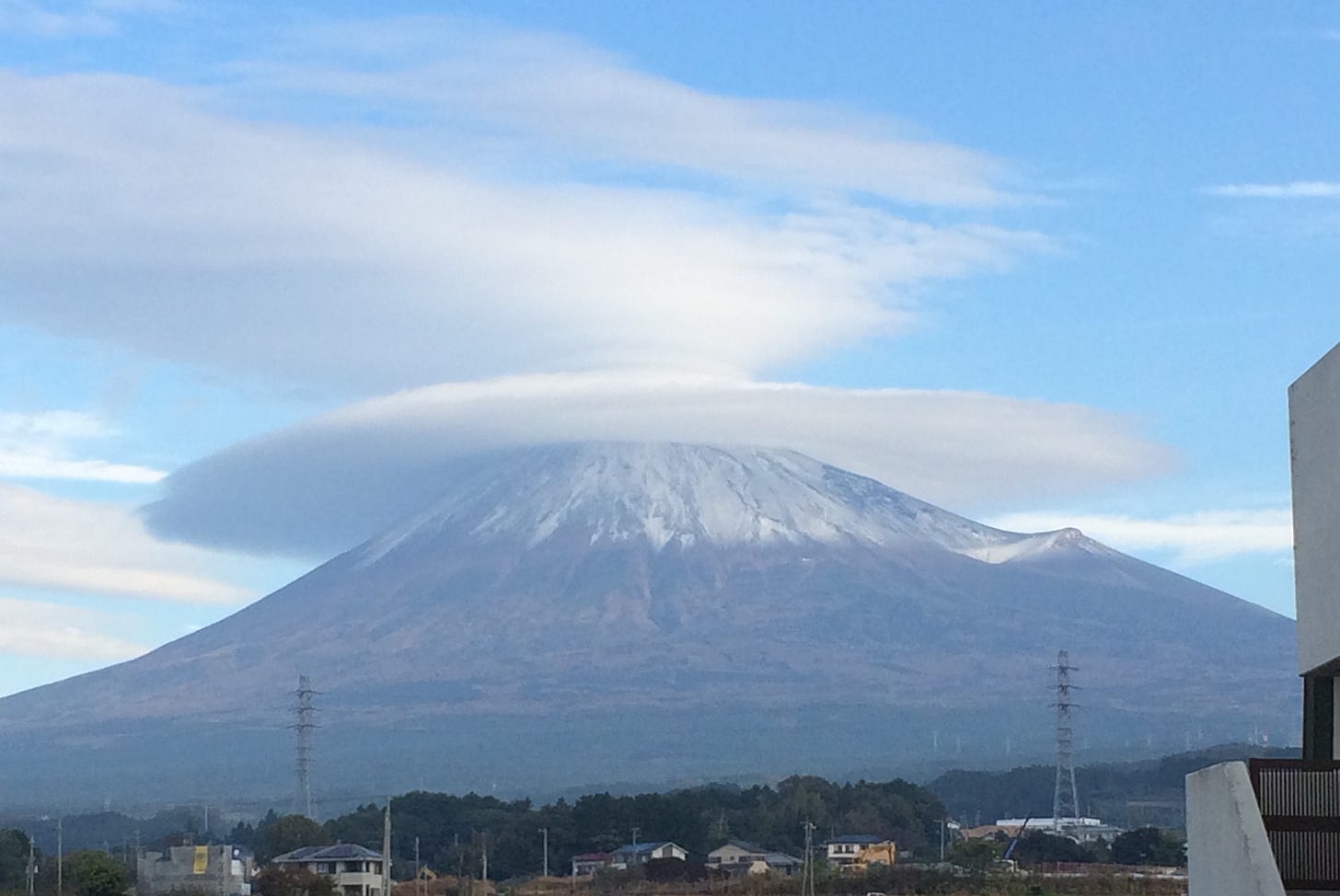How a Smile Changed My Life
Nearly forty years ago, when I was a more frisky and somewhat thinner man, I left my home on Vancouver Island in Canada and came to Japan to seek my fortune. During part of my career, I worked as an English professor at the Fuji campus of Tokoha University for nearly twenty years. If you look at the English page on Wikipedia, the brief entry says that it was chartered as a university in 2000 and closed in 2018. There is no photograph.
Our small university opened and closed without making much of an impression, not even on Wikipedia. But I was happy there and honored to be present throughout the life of a university, even if it didn’t last very long.
For most of the days I worked there, I was greeted by Mr. Machino, a guard at the entrance gate. He would salute me, smile, and wave me into the faculty parking area.
One Wednesday, just before our campus was closing, I arrived at the gate in a foul mood.
Wednesday was meeting day.
If you have not experienced a faculty meeting at a Japanese university, I will gently suggest to you that it might be an experience that you will not want to repeat too often.
One meeting stands out in my mind. After a couple of hours, we had a short break and then gathered again to continue into the evening. A while later, after listening to a few people repeating the same things over and over and over again, I looked across at my colleague sitting in front of me and pointed excitedly at my watch. He looked at me questioningly. I leaned over and whispered, “A total of six hours. That’s a new record!”
My colleague seemed a bit annoyed at me for pointing this out.
As I arrived at the gate and contemplated the horrible meeting that was surely to come, I was thinking the meeting on this particular day would be the longest, most time-wasting one ever, to feel justified in feeling sorry for myself.
Mr. Machino waved to me and greeted me with his splendid smile.
Something shifted in my mood. On this particular morning, Mr. Machino didn’t have many reasons to smile. It was raining heavily, and he had to stand outside to greet people arriving. I, on the other hand, had to teach for a few hours and would then be able to retreat to the comfort of my office for a cup of coffee.
A few meters away from where Mr. Machino greeted people with his smile stood a small shack that a person handy with tools could bang together over a weekend. It was made of plywood, had one sliding window and a door, and a rope over its roof to keep it from getting blown over. It was Mr. Machino’s headquarters.
I need to tell you how awful this shack was.
It was so awful I once went to the president’s office and asked if they might consider building something more substantial for the guard at the gate, pointing out that it became intolerably hot in the summer and freezing cold in the winter. Wouldn’t it be nicer if it was a building with heating and cooling? Since the guard was the first person who greeted people, it would reflect better on our wonderful university if he looked happy and well taken care of.
As I left the president’s office, I heard the president and vice president chuckling together. They were probably wondering if guards at foreign universities worked under luxurious conditions with espresso machines and deck chairs.
On this particular morning of heavy rain, as I pondered my dreaded meeting, Mr. Machino’s smile made me feel that I was a horrible person who should appreciate just how lucky he was to have things like an actual roof and a nearby power supply.
And I did not have to stand in the middle of a downpour and smile at undeserving people who passed by my gate.
When our campus closed, I walked down to the gate at the entrance, introduced myself to Mr. Machino, and thanked him for his many smiles. I told him how much of a difference he made to my days working there and gave him a small framed photograph.
“This is for you. It’s a picture of where I’m from on Vancouver Island in Canada,” I said. He seemed very happy to receive my small gift.
I asked if he would mind if I took his picture. He smiled, walked over to a nearby sign, placed his hand on it, and apologized. He was sorry, he said, but he had a weak leg, and he had to prop himself up using the sign for me to take a photograph.
So, not only did Mr. Machino smile splendidly for me almost every morning, but he also smiled in the pouring rain, even when it was not easy for him to stand.
He became even more of a hero to me that day.
When something awful happens, and I am about to feel sorry for myself, I remember how Mr. Machino stood in the pouring rain and greeted me with his smile. Then, the world seems like a better place.
Over the years, I have thought about the people I have met. I have met high-ranking people who were often rude and insignificant. But the people who have had the most positive impression on me tend to be humble and kind. I still don’t know why that might be, but I would like to suggest that this story is a bit more than a guy smiling at a gate.
Mr. Machino is an example for us all.




I just read your piece over the pacific ocean on the way to Haneda airport--will carry your memory with me as I wander the streets of Tokyo! <3
A masterclass in telling a small story with such captivating detail. Well done John!